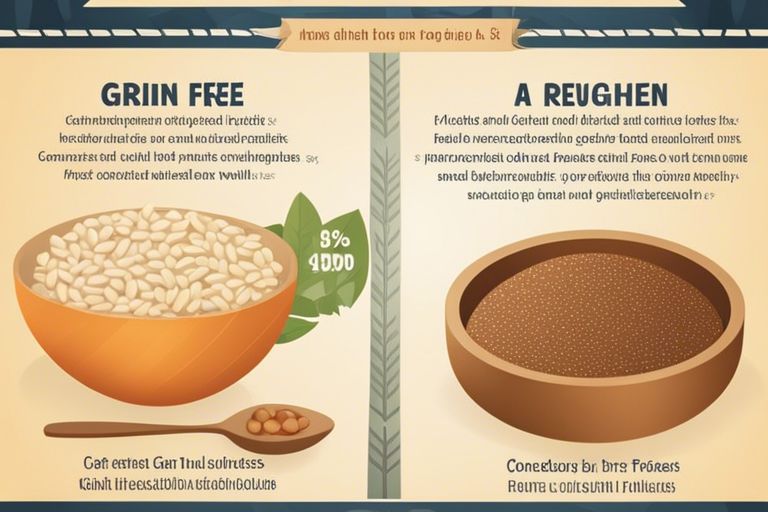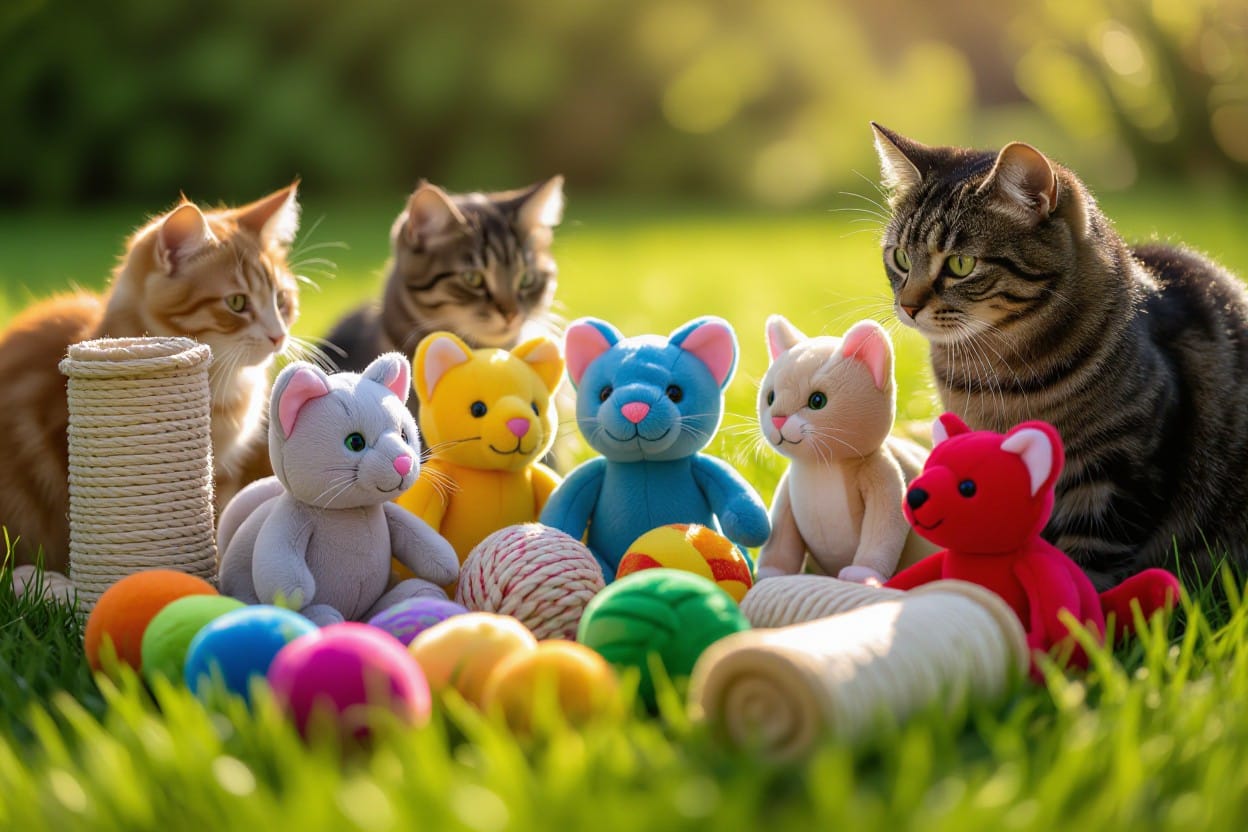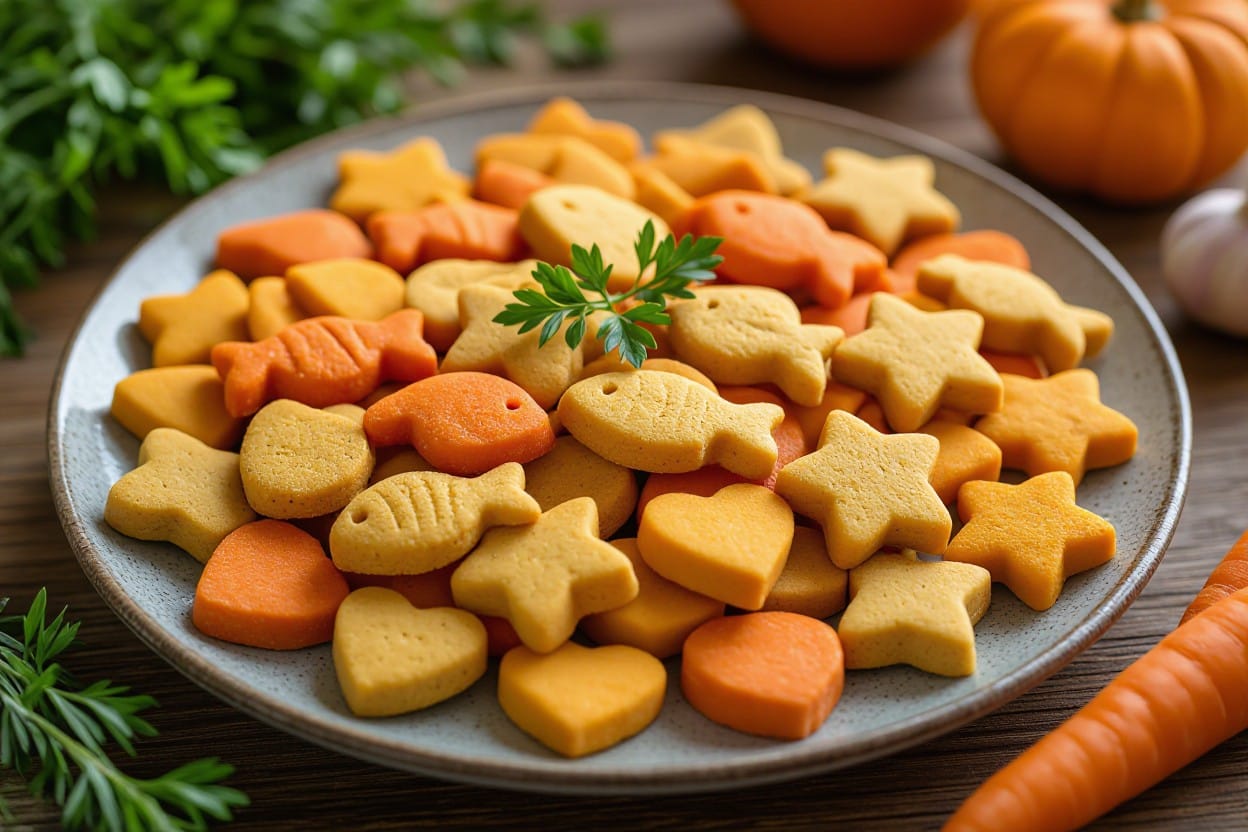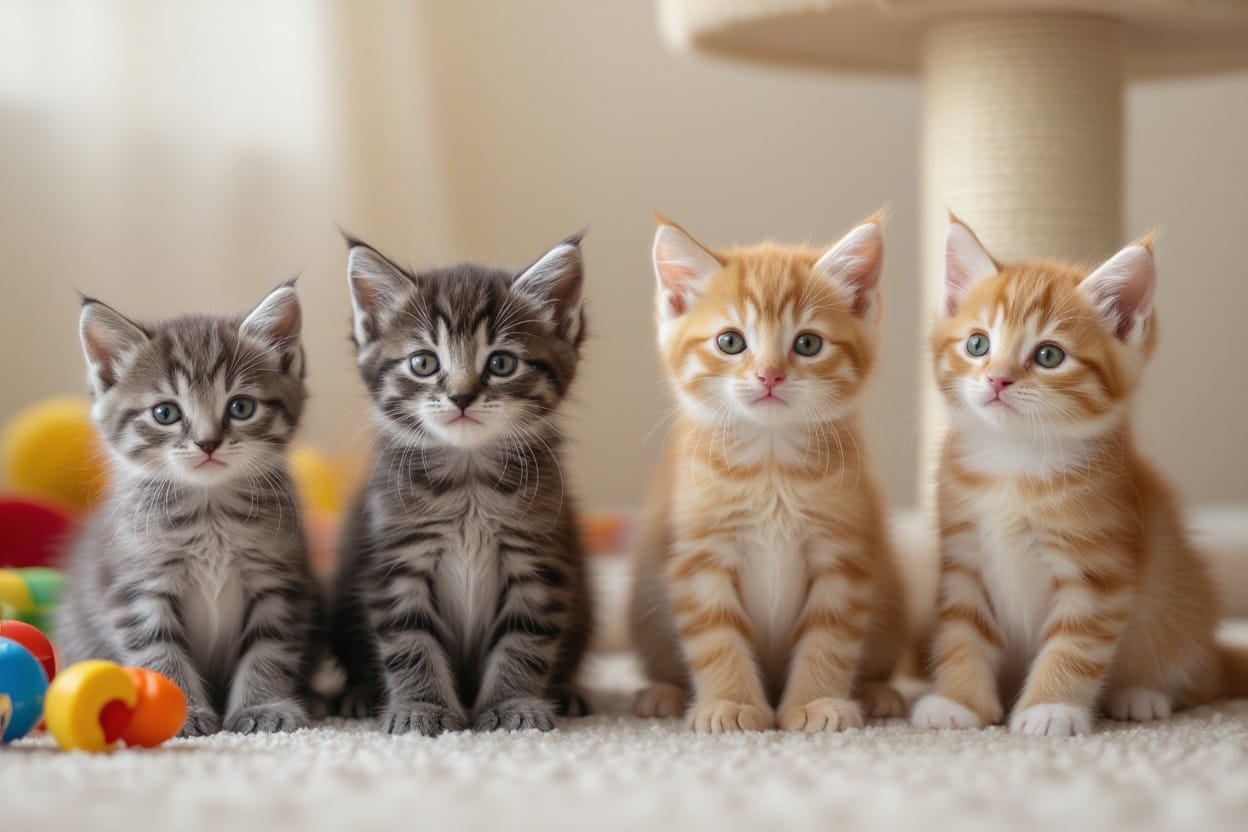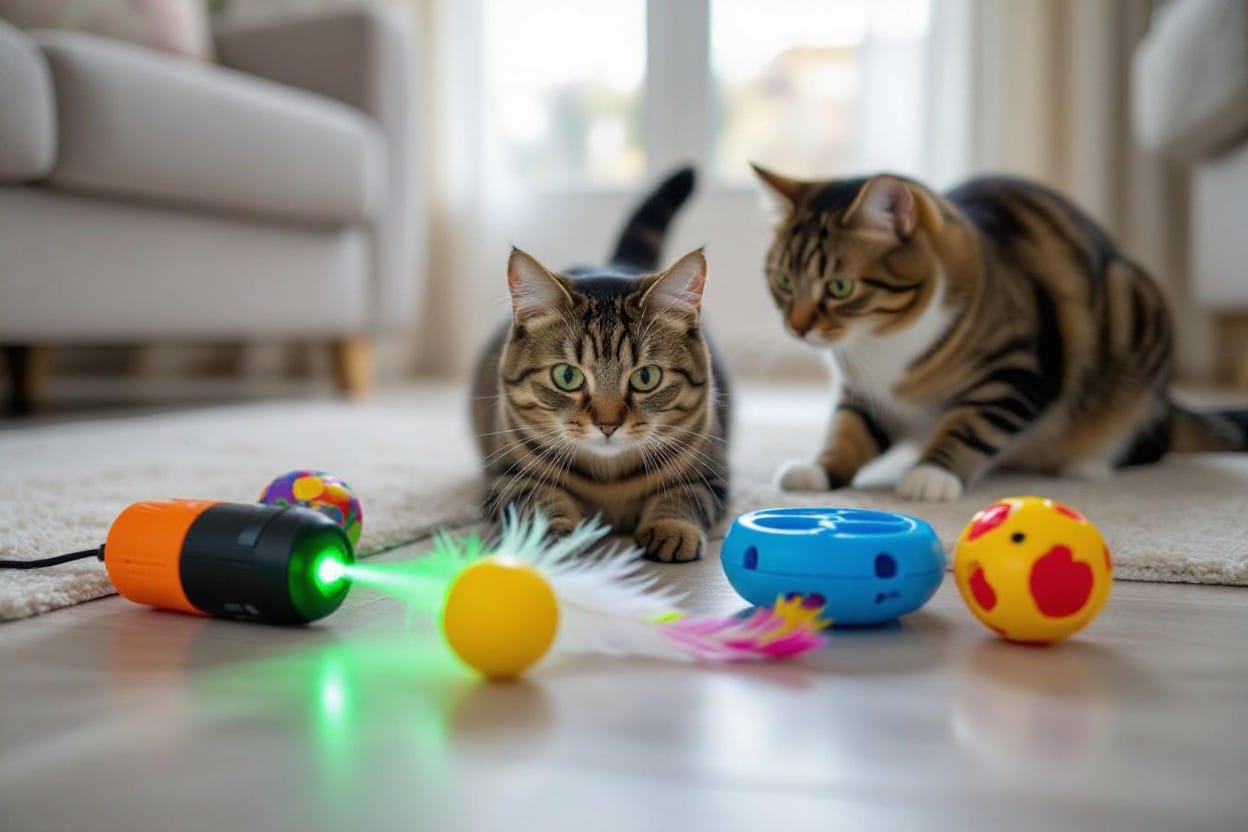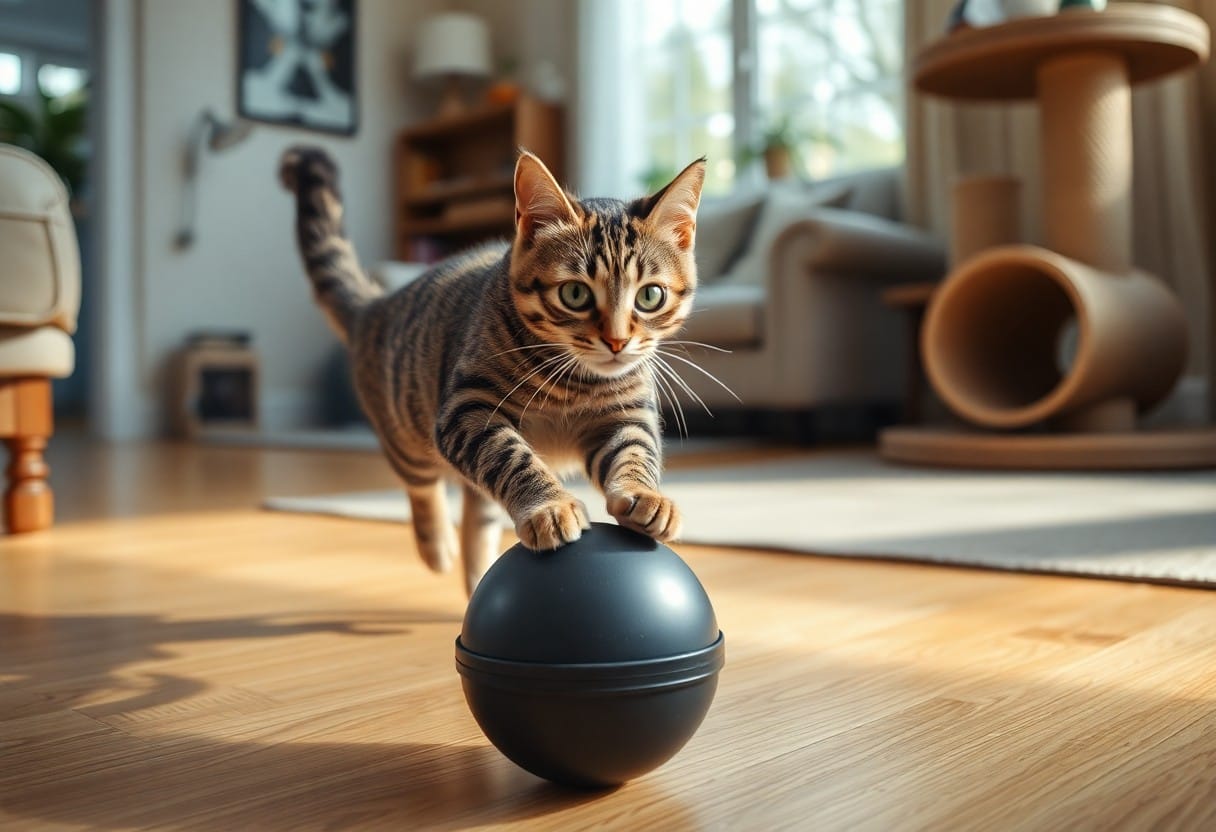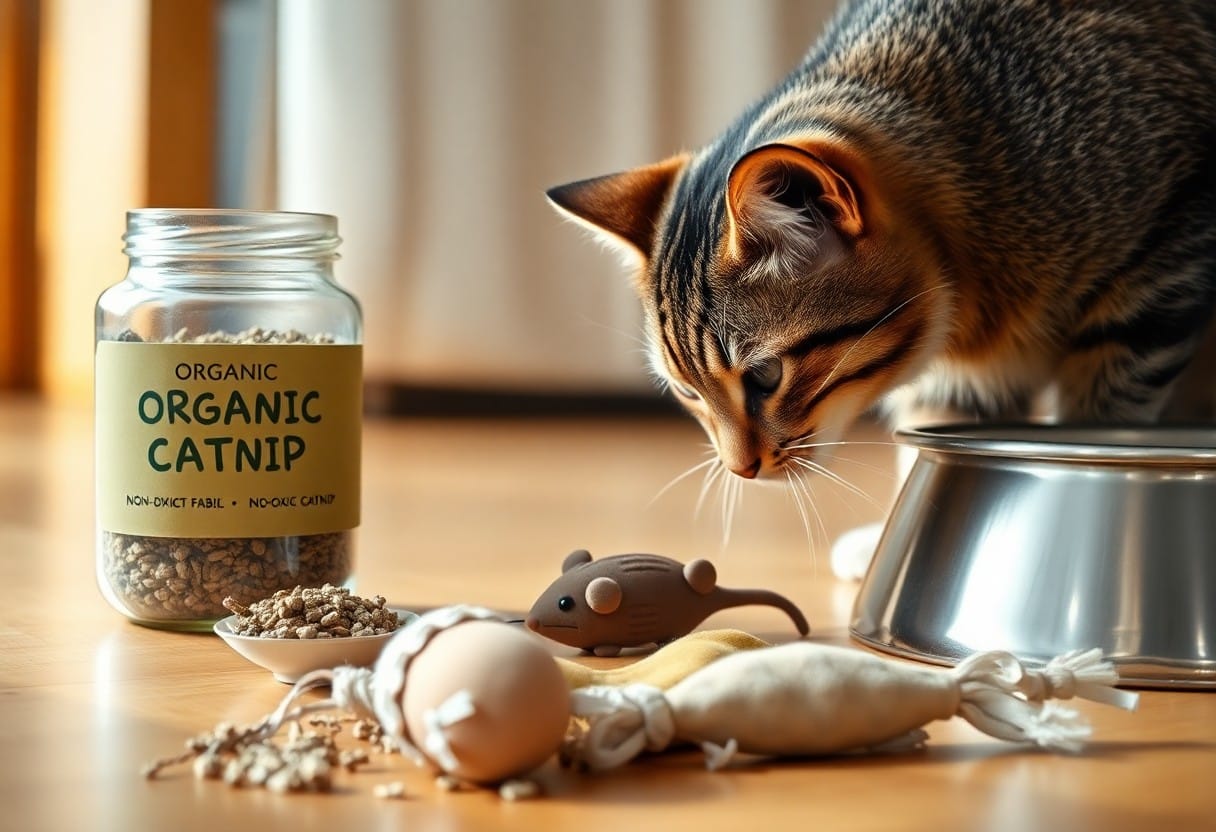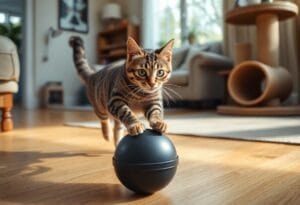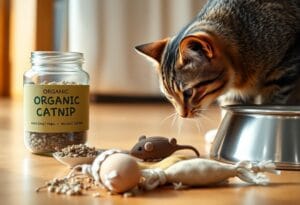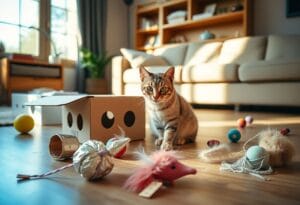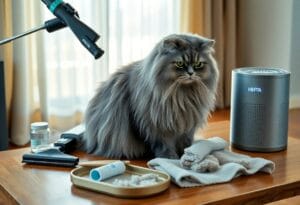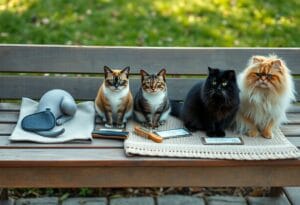Just as proper nutrition is vital for human health, it is equally crucial for our feline companions. When considering feline nutrition, the debate between grain-free and grain-inclusive diets is ongoing. In this blog post, we will explore the differences between these two types of diets and shed light on which might be the best option for your feline friend.
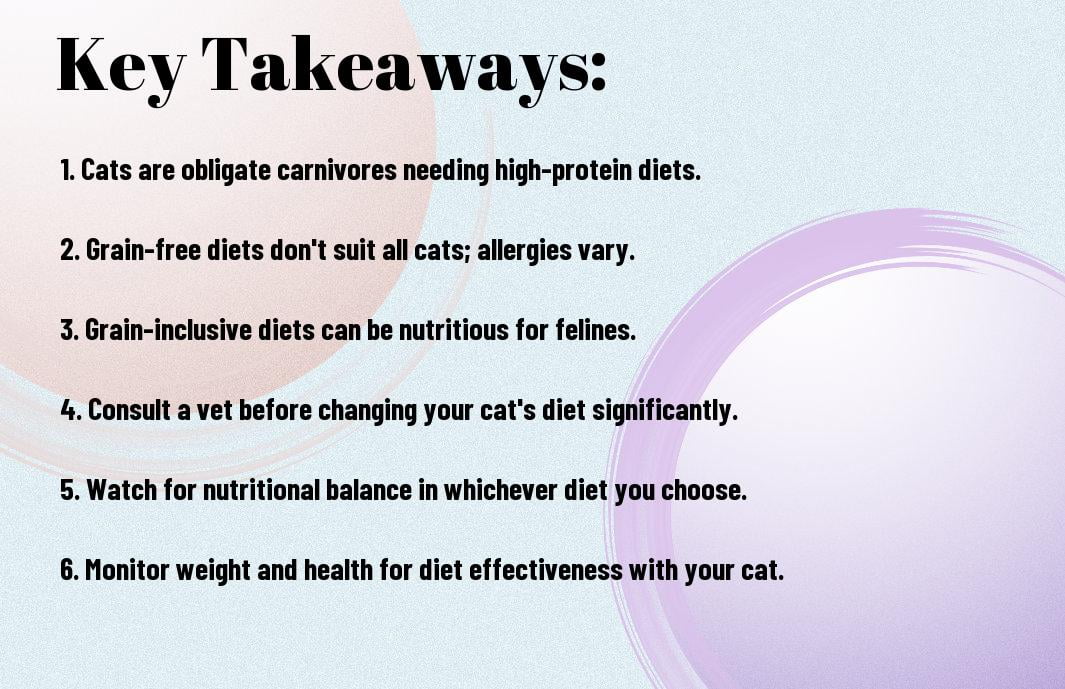
Understanding Feline Biology
Obligate Carnivorous Nature of Cats
Biology dictates that cats are obligate carnivores, meaning their bodies are designed to derive crucial nutrients from animal sources. Cats have a higher protein requirement compared to many other animals, and they also require specific amino acids like taurine, which is only found in animal tissue. This evolutionary trait drives cats to hunt for animal prey in their natural habitat to meet their nutritional needs.
The Role of Carbohydrates in Feline Health
An understanding of feline biology reveals that while cats have a limited ability to digest and utilize carbohydrates, they do not have a strict dietary requirement for them. Carbohydrates primarily serve as a source of energy and may even contribute to weight gain and other health issues, such as diabetes, when consumed in excess for cats. Therefore, a diet that closely mirrors a cat’s natural carnivorous diet, high in protein and low in carbohydrates, is crucial for their overall health and well-being.
Grain-Free Diets Explained
Composition and Ingredients of Grain-Free Diets
The rise in popularity of grain-free diets for cats has brought attention to the ingredients used in these formulas. Grain-free diets typically contain high-quality animal proteins such as chicken, fish, turkey, or beef as the primary ingredient. These diets often rely on alternative sources of carbohydrates like sweet potatoes, peas, or lentils instead of grains like wheat, corn, or rice.
The absence of grains in these diets might be beneficial for cats with food sensitivities or allergies to grains. The exclusion of grains also means that the carbohydrate content in grain-free diets is generally lower compared to grain-inclusive options. This can be advantageous for cats who do not require as many carbohydrates in their diet.
Potential Benefits of Grain-Free Diets for Cats
Cats are obligate carnivores, meaning their bodies are designed to thrive on a diet that is high in animal-based protein. Grain-free diets provide a way to mimic a more species-appropriate diet for cats by focusing on protein sources that cats would consume in the wild. This can contribute to overall health and well-being, as cats may have an easier time digesting and utilizing the nutrients from animal proteins.
Grain-free diets are also sometimes chosen for weight management purposes, as the lower carbohydrate content can help prevent excess weight gain. Additionally, some cat owners believe that grain-free diets promote healthier skin, shinier coats, and improved energy levels in their feline companions. While these claims are often anecdotal, some cats do indeed seem to thrive on grain-free options.
Grain-Inclusive Diets Explored
What Constitutes a Grain-Inclusive Diet
Your cat’s diet may be considered grain-inclusive if it contains a certain amount of grains, such as rice, corn, wheat, or oats, in addition to other imperative nutrients. These grains can provide a source of carbohydrates for energy and fiber for digestive health in your feline friend’s diet.
Nutritional Advantages of Grains in Cat Food
With the right balance of grains in your cat’s diet, they can offer a variety of nutritional advantages. Grains like brown rice and oats can provide imperative vitamins, minerals, and fiber that contribute to overall feline health. Additionally, grains can act as a source of energy and aid in digestive regularity, promoting a healthy gut microbiome for your cat.
Understanding the nutritional benefits of grains in cat food is crucial for providing a well-rounded diet for your feline companion. When included in appropriate amounts, grains can complement other imperative nutrients in your cat’s diet and contribute to their overall well-being.
Debunking Myths and Misconceptions
Grain Allergies in Cats – Separating Fact from Fiction
Myths surrounding grain allergies in cats have circulated for years, leading pet owners to believe that grain-free diets are necessary for all felines. However, the truth is that true grain allergies in cats are exceedingly rare. Cats are more prone to developing allergies to animal proteins such as beef, dairy, or fish rather than grains like corn or wheat. It’s important for pet owners to consult with a veterinarian before making drastic dietary changes based on assumptions about allergies.
The Truth About Grains and Feline Obesity
With the growing concern over pet obesity, some myths have emerged linking grain consumption to weight gain in cats. In reality, it is the overall caloric intake that influences weight more than the presence of grains in a cat’s diet. Grains can be a source of carbohydrates and energy for felines when included in balanced amounts. Overfeeding, lack of exercise, and poor diet choices are more significant factors in feline obesity than the mere presence of grains.
Debunking common misconceptions about grain-inclusive diets is crucial for understanding feline nutrition. While grain-free options have gained popularity, it’s imperative to be informed about the actual impact of grains on cats’ health. Consulting with a veterinarian can provide tailored advice on the best diet choices for individual cats based on their unique needs and health considerations.
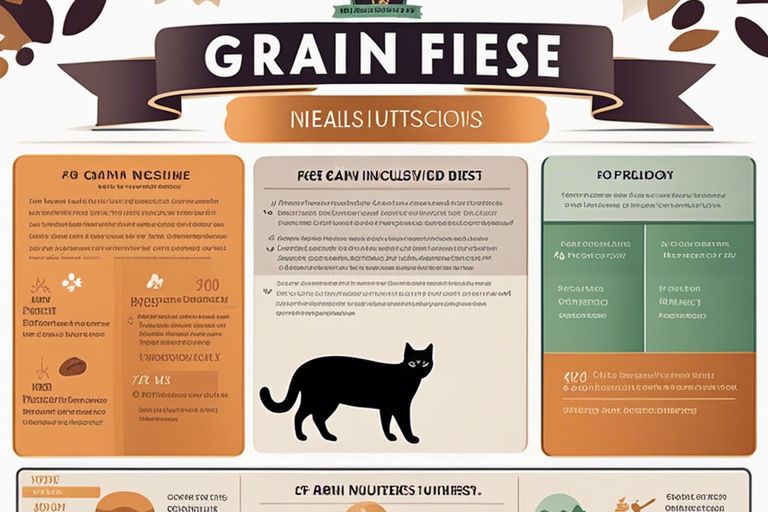
Health Considerations and Implications
Impact of Diet on Feline Health Issues
Many cat owners are becoming increasingly aware of the importance of diet in maintaining their feline friends’ health. The type of diet you choose for your cat can have a significant impact on their overall well-being. A diet high in grains may contribute to issues such as obesity, diabetes, and food sensitivities. On the other hand, grain-free diets are often touted as being more species-appropriate for cats, as they mimic a diet closer to what cats would eat in the wild.
The Link Between Diet and Chronic Diseases in Cats
For cats, diet plays a crucial role in the development and management of chronic diseases. Certain chronic conditions, such as diabetes, kidney disease, and inflammatory bowel disease, can be influenced by the type of food your cat consumes. Studies have shown that a high-carbohydrate diet, often present in grain-inclusive diets, may contribute to insulin resistance and obesity, increasing the risk of diabetes in cats.
The link between diet and chronic diseases in cats is a complex and evolving field of study. It is crucial for cat owners to work closely with their veterinarian to develop a tailored nutrition plan that meets their cat’s specific health needs. By understanding the impact of diet on feline health issues, you can make informed decisions that support your cat’s overall well-being and longevity.
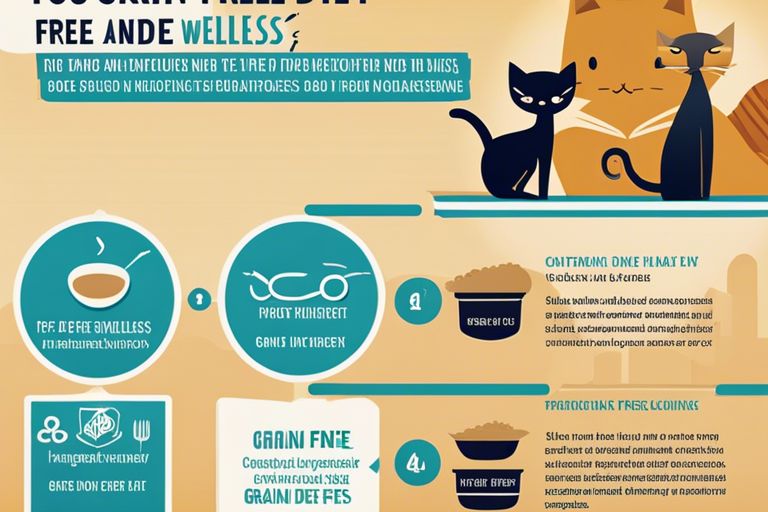
Choosing the Right Diet for Your Cat
Assessing Your Cat’s Individual Needs
Needs After deciding to choose either a grain-free or grain-inclusive diet for your cat, it is crucial to assess your cat’s individual needs. Consider factors such as age, weight, activity level, and any health conditions your cat may have. Cats with specific dietary requirements may benefit from a grain-free diet, while others may thrive on a diet that includes grains. By understanding your cat’s unique needs, you can make an informed decision about the type of diet that will best support their overall health and well-being.
Consulting With Veterinarians and Nutritionists
One Before making any changes to your cat’s diet, it is crucial to consult with veterinarians and nutritionists. These professionals can provide valuable insights and recommendations based on your cat’s specific requirements. They can help you determine whether a grain-free or grain-inclusive diet is the right choice for your cat and offer guidance on selecting high-quality pet food brands that meet their nutritional needs.
Your veterinarian can also monitor your cat’s progress once the new diet is implemented, ensuring that it is well-tolerated and supports their health. Nutritionists can provide tailored advice on balancing your cat’s diet to ensure they receive the necessary nutrients for optimal health. By working with these experts, you can make confident decisions about your cat’s nutrition and provide them with a diet that meets their individual needs.
Final Words
Following this comparison of grain-free and grain-inclusive diets for cats, it is evident that both types of diets can provide the necessary nutrients for feline health. While grain-free diets may be preferred for cats with specific dietary needs or allergies, grain-inclusive diets can also be a viable option for many cats. The key is to choose a high-quality cat food that meets the nutritional requirements of your feline friend, whether it contains grains or not.
Ultimately, when deciding between grain-free and grain-inclusive diets for your cat, it is important to consider your cat’s individual preferences and dietary requirements. Consult with your veterinarian to determine the best diet for your cat based on their specific health needs and preferences. Bear in mind, what matters most is providing a balanced and nutritionally complete diet that supports your cat’s overall health and well-being.
FAQ
Q: What is the difference between grain-free and grain-inclusive diets for cats?
A: Grain-free diets do not contain any grains, while grain-inclusive diets include grains such as rice, corn, and wheat as sources of carbohydrates.
Q: Are grain-free diets better for cats than grain-inclusive diets?
A: There is no clear consensus on whether grain-free diets are superior to grain-inclusive diets for cats. Both can provide adequate nutrition if formulated correctly.
Q: Why do some cat owners choose grain-free diets?
A: Some cat owners opt for grain-free diets due to concerns about potential grain allergies or sensitivities in their cats, although such allergies are rare.
Q: What should I consider when choosing between grain-free and grain-inclusive diets for my cat?
A: When deciding on a diet for your cat, consider their individual nutritional needs, age, activity level, and any known food allergies or sensitivities they may have.
Q: Are there any risks associated with feeding a grain-free diet to cats?
A: Risks of feeding a grain-free diet to cats include potential nutritional imbalances if the diet is not properly formulated, as well as the higher cost of some grain-free options compared to grain-inclusive diets.
